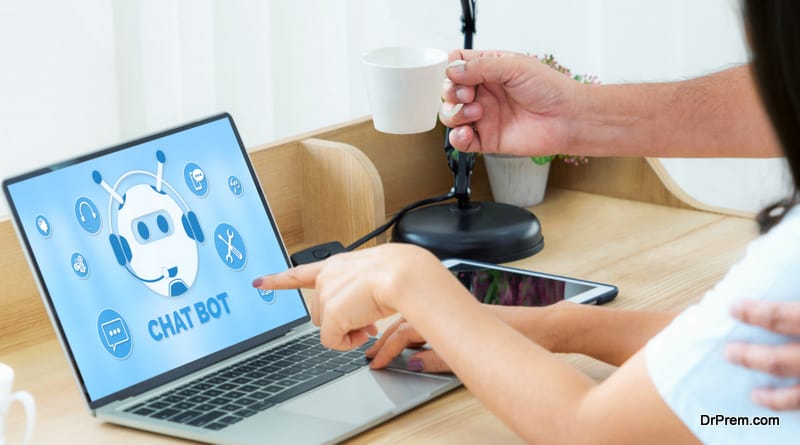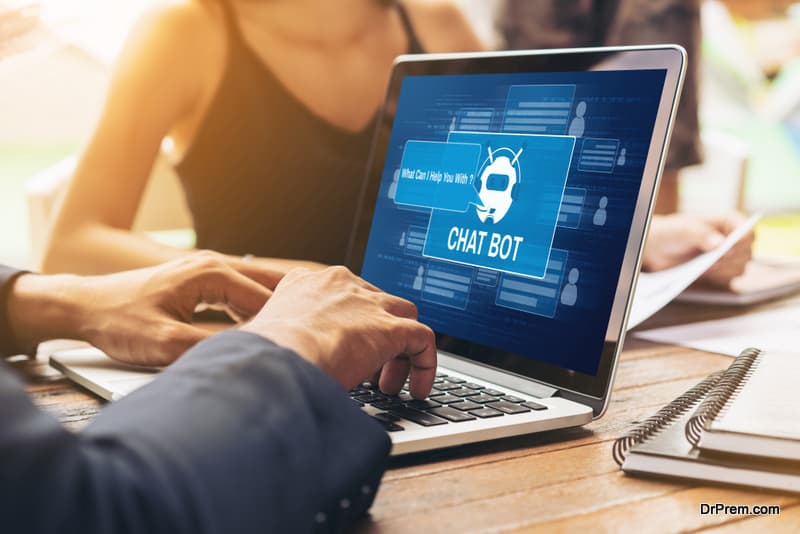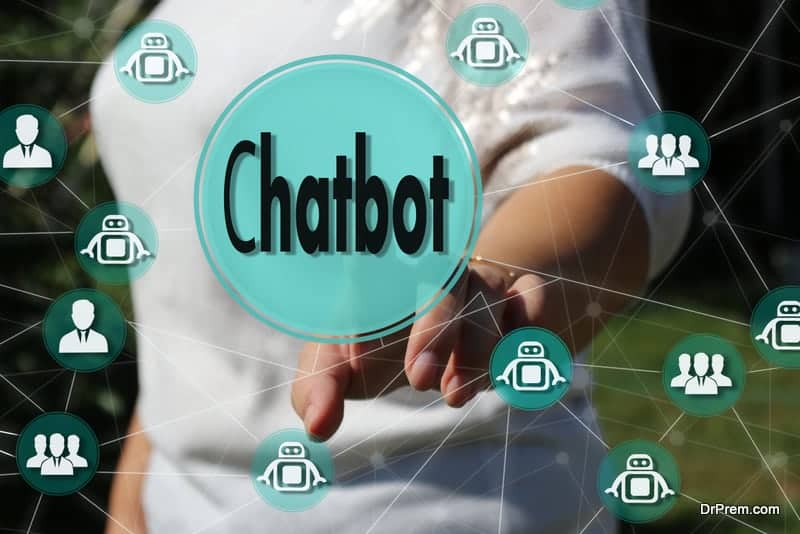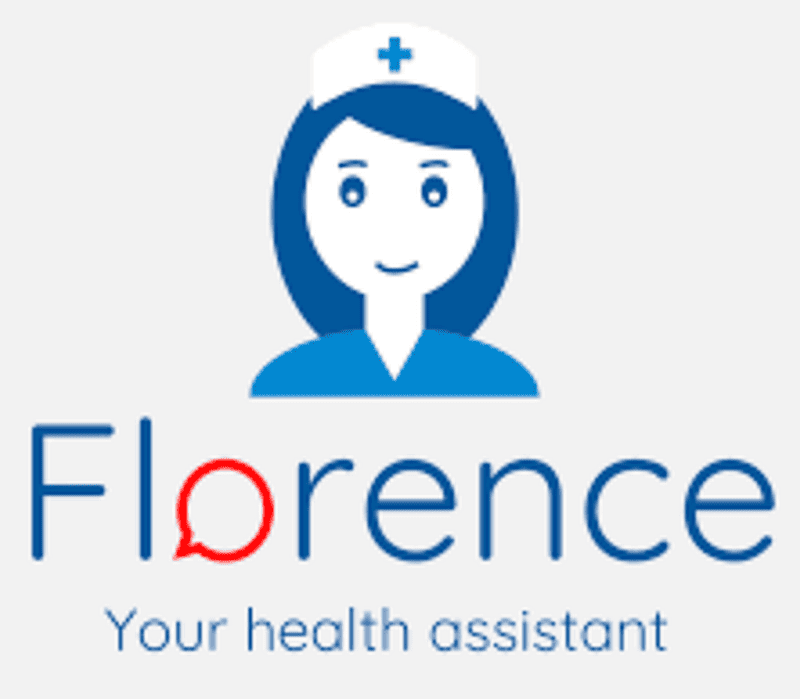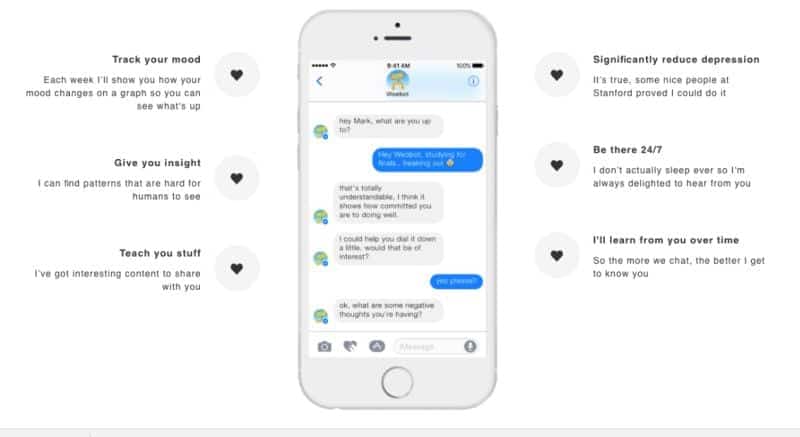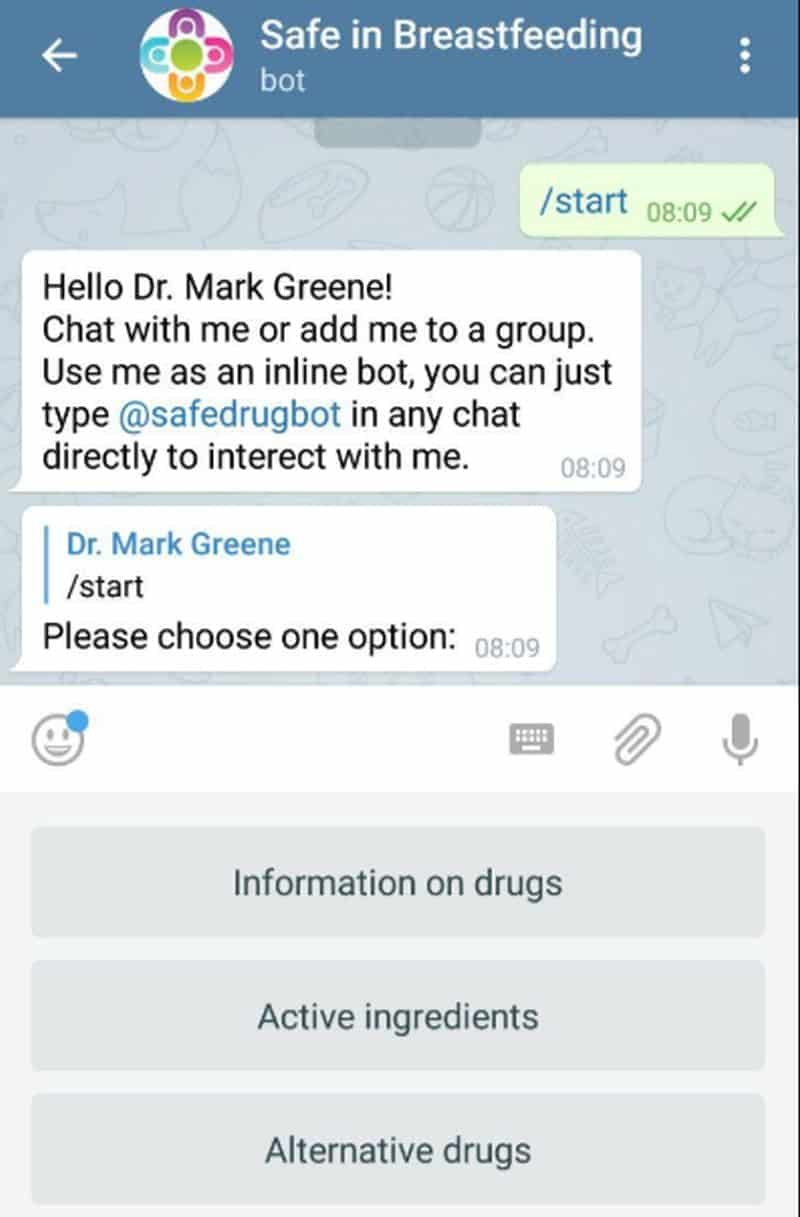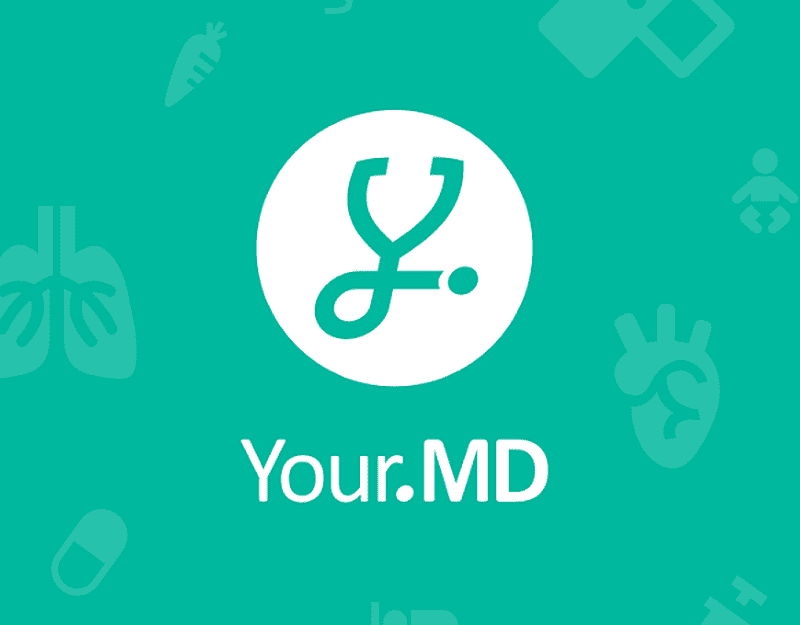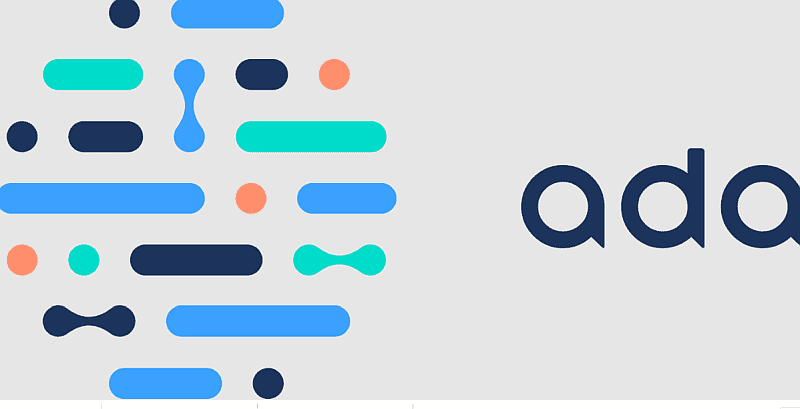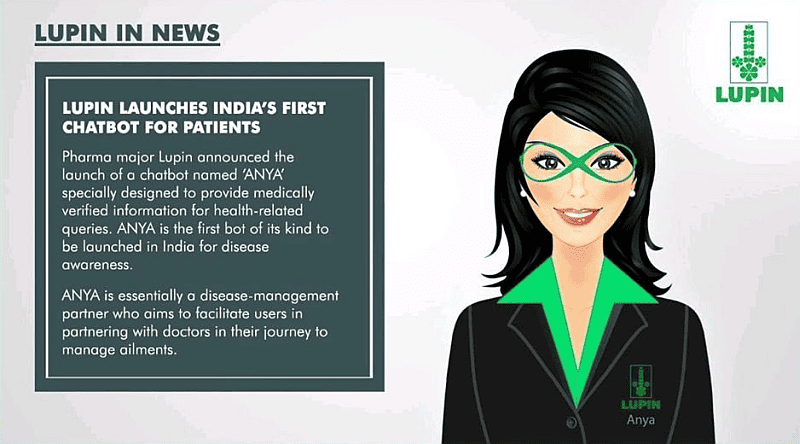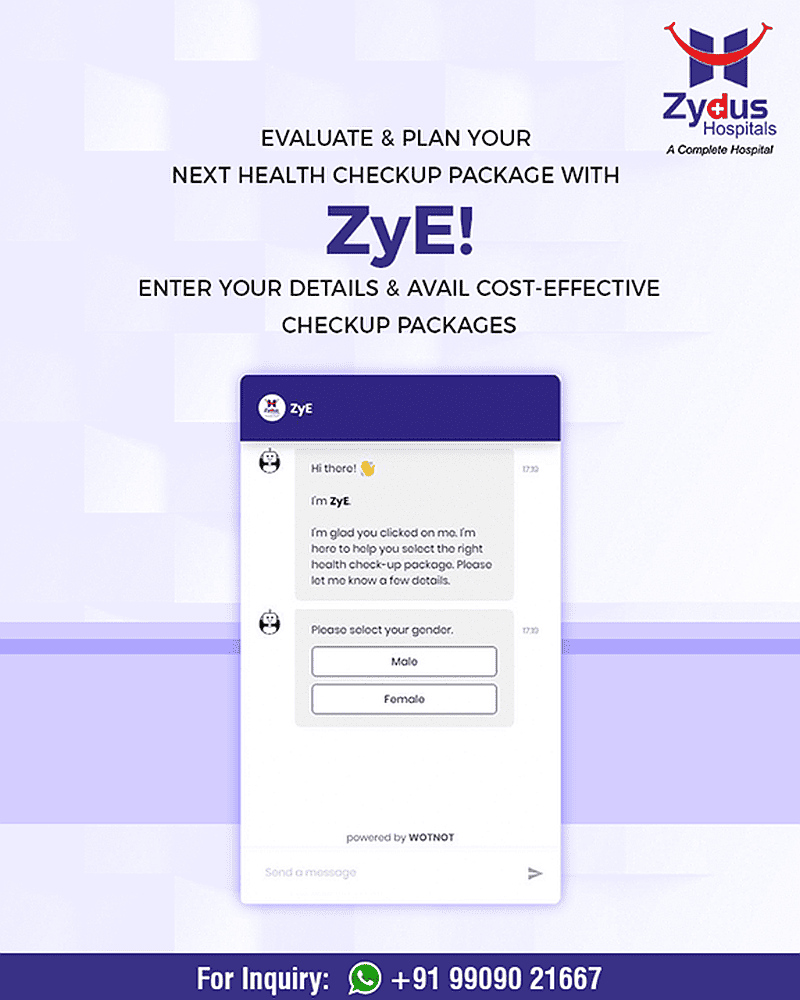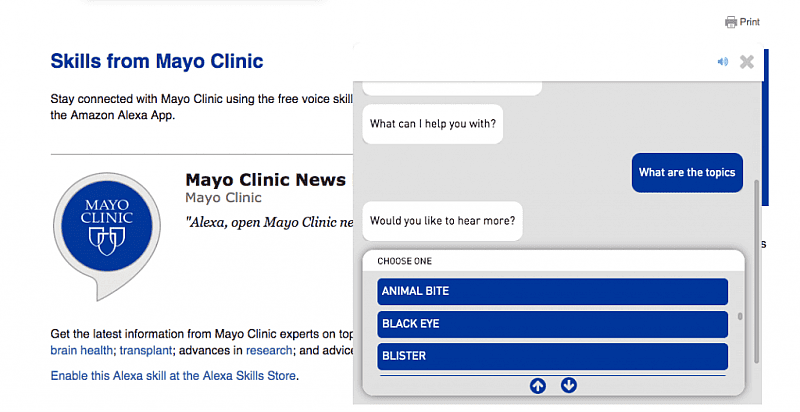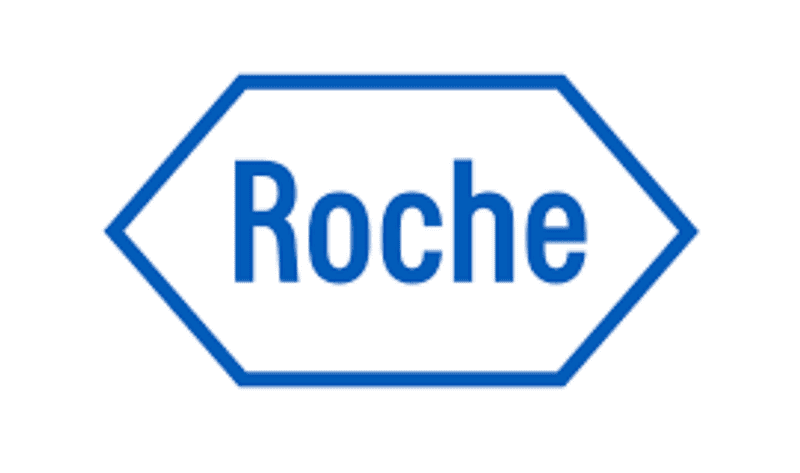AI (Artificial Intelligence) enabled Smart personal assistants Siri and Alexa have won millions of hearts. They have made our lives so easy!To what extent Chatbots in global healthcare management will be effective? The truth is that chatbots have the potential to revolutionize healthcare delivery through streamlined operations. This would not only lessen the burden of medical professionals but alsoempower patients and foster empathetic patient care.
The Global chatbot industry is estimated to touch $1.23 billion by 2025 growing at a CAGR of 24.3%. Industry forecasts reveal chatbots can account for $8 billion in savings per year by 2022 from $20 million savings in 2017. Gartner predicts that by 2021 75% of healthcare delivery organizations will invest in AI capability to improve operational efficiency or clinical outcomes.
Let us delve deep into this. In this global healthcare guide, you will read about:
A Guide On Chatbots In Global Healthcare Management by Dr. Prem– Importance, Benefits, Examples, And Case Studies
-
Why the need of Chatbots in Global Healthcare Management?
-
Empathetic Chatbots in healthcare to improve doctor-patient relationship and patient experience
-
Top reasons why healthcare chatbot use cases are growing
-
Medical chatbots replacing texting
-
Top 10 Chatbots in Global Healthcare Management
-
Babylon
-
Florence
-
IBM Watson
-
Microsoft AI Health Bot Project
-
Safedrugbot
-
Your.MD
-
SimSensei
-
Molly
-
Ada Health
-
Infermedica
-
Far-flung reach of Chatbot assistance
-
To what extent are Chatbots gaining acceptance in healthcare facilities?
-
Notable Case Studies on Chatbots in Global Healthcare
-
Will Chatbots intrude our boundary of privacy?
-
The power balance between humanity and technology: Who will have more control?
Why the need of Chatbots in Global Healthcare Management?
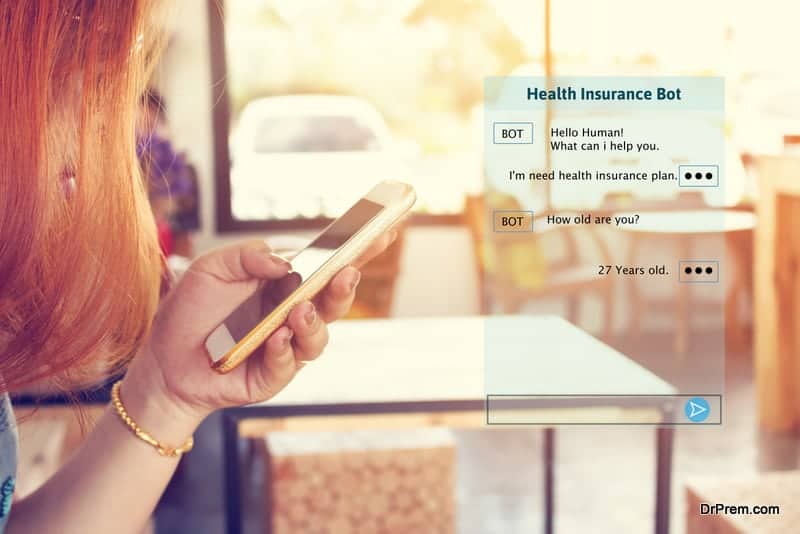
By 2030, the global healthcare shortfall is estimated to be 10 million mainly in low and low-middle-income countries. (WHO).
AI has been transforming global healthcare. Advanced Chatbots in global healthcare management are garnering more attention for the following:
- Streamline patient inquiries thereby reducing the work burden
- Improve doctor patient relationships.
- Instant assistance increasing patient engagement and satisfaction
- Personalized advice based on current symptoms and medical history
- Quick support in appointment scheduling, follow-ups, and medication reminders.
- Efficient and effective remote patient monitoring helping in timely diagnosis and intervention.
- Cost reduction by automating redundant tasks
- Improved healthcare accessibility especially in underserved areas.
- 24X7 availability beyond the normal clinic hours.
- Improved and fast decision-making based on patient interaction data and analytics.
- Promote healthcare education with relevant disease information, treatments, and preventive measures.
PWC reports in 2017 states that more than half of the population in Europe, Africa and Middle East are likely to implement robotics and AI chatbots in healthcare.
Empathetic Chatbots in healthcare to improve doctor-patient relationship and patient experience:
The doctor-patient relationship has been undergoing radical changes with widespread internet use. Patients are demanding a constant physician attention. Often, there are symptoms that do not call for in-person examination but that cannot be left unattended. This leaves the patient nervous.
As a result, the doctors are finding themselves trapped in attending less serious issues leaving the critically ill suffer more. An estimate in the UK suggests that 3 out of 5 clinical visits to a GP can be handled by healthcare assistants or through self-care by providing suitable information and guidance.
Chatbots in healthcare can serve this area brilliantly through an empathetic virtual interaction enabled by natural language processing. If more patients are included in the virtual healthcare loop; the demand for human-like empathetic touch will be more, since nothing can replace empathy in healthcare.
Medical chatbots replacing texting
These virtual digital assistants have a lot more in store than the simple messaging apps. The voice-enabled application allows you to use it whenever you can in the hands-free mode. No need to take the trouble of texting. These apps are likely to play an important role in maintaining the in-family communication system in times of medical attention.
Top 10 Chatbots in Global Healthcare Management
Chatbots are donning different caps in medical assistance. Below are few examples where the bots are making a notable mark:
1. Babylon:
A doctor on an average can do 7000 consultations per year. Babylon, one of the prominent AI-powered conversational healthcare chatbot; helps in many more times medical consultations and quick diagnosis referring billions of data. Within 90 seconds, it can assist the patient including scheduling a video conference with the physician yielding a medical consultation fee as low as £5 per month.
2. Florence:
This healthcare chatbot mimics a nurse helping you take medicines on time and alerts of missed dosages as well. It is most useful in elderly care as it can also help in fixing an appointment with a nearby specialist. Florence can also monitor your health including menstrual cycles.
3. IBM Watson:
Another popular health chatbot, IBM Watson assists doctors in treating severest cancer diseases. Watson also helps researchers in new drug discovery. By scanning millions of evidence-based records, patient data and medical texts in seconds; it is helping doctors in developing treatment plans on the basis of patient’s symptoms and medical and genetic profile.
4. Microsoft AI Health Bot Project:
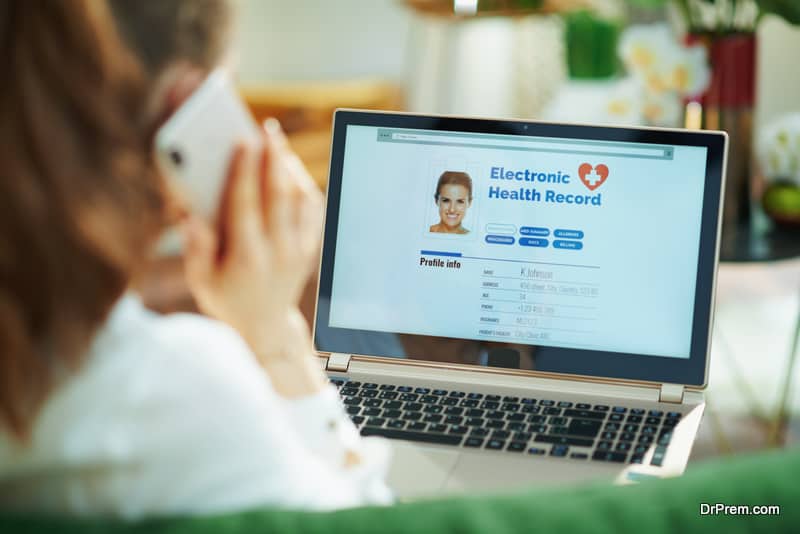
5. Safedrugbot:
Image Source : safeinbreastfeeding.com/
It is a useful messaging app guiding doctors about possible side effects of drugs. This is especially beneficial for breastfeeding moms and ensures their safety.
6. Your.MD:
It can be a smart replacement of human clinical assistance. The chatbot understands the symptoms and accordingly asks approved questions for diagnosis. If required, it can set up appointments with physicians.
7. SimSensei:
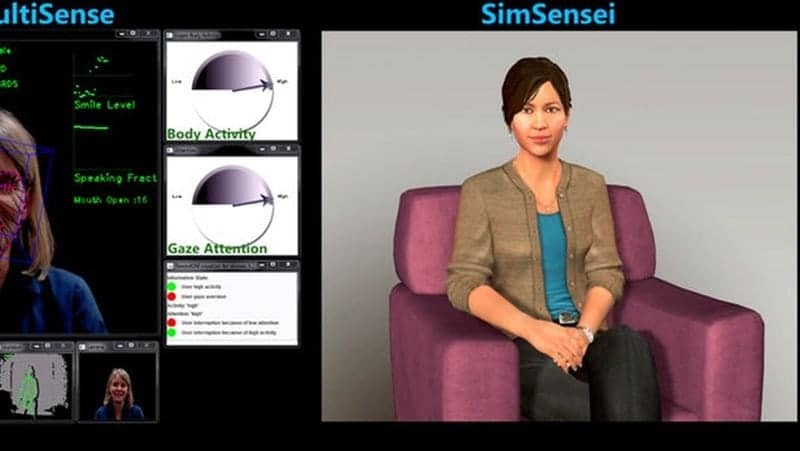
Though in the experimental stage, it is aimed to mimic a therapist through voice and face recognition. It is also programmed to reach deeper levels of patient interaction.
8. Molly:
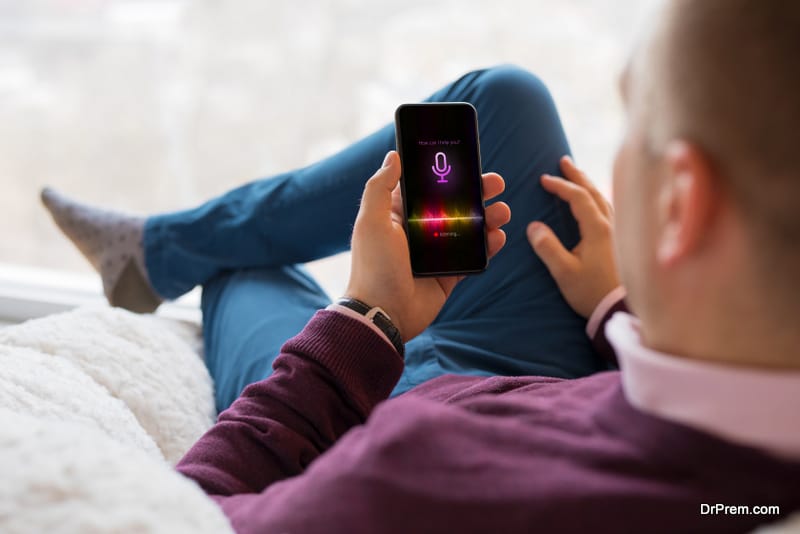
9. Ada Health:
The fastest growing health companion app in Europe in 2017 with over 1.5 million users, this bot can assess the user’s health conditions by analyzing the symptoms. It is set to become a handy diagnostic tool for doctors. Users can share their health assessment with physicians or can consult them via the Doctor Chat feature. Ada will be helpful as a long term companion by assisting patients and physicians in monitoring health data and taking proactive measures.
10. Infermedica:
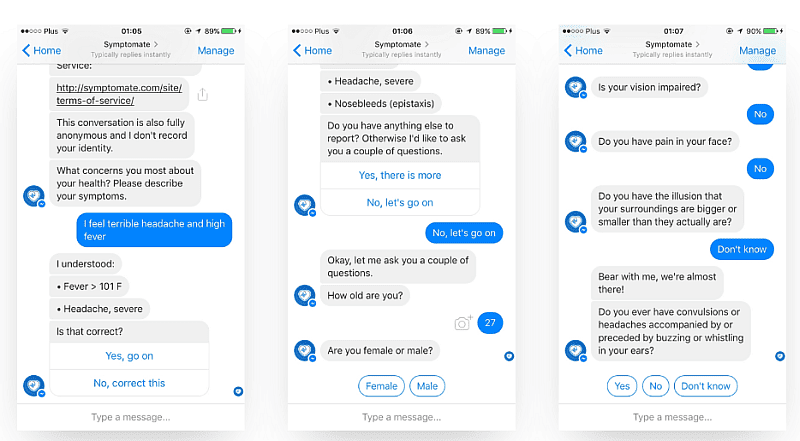
Far-flung reach of Chatbot assistance:
Chatbots in healthcare is not only meant for time-saving medical assistance but can also enable patients to refill their prescription medicines and pay the required bill. They also help in delivering lab tests reports and suggest recommended steps to follow.
Whatever assistance the bots provide, they cannot be a replacement for doctors. On the other hand, these bots can suggest physician consultation after intelligent assessment and help in scheduling appointments.
To what extent are Chatbots gaining acceptance in healthcare facilities?

- The University of Hospital, Marburg, Germany has adopted IBM Watson in diagnosis and treatment of rare ailments.
- The Chatbot Oncology Expert Advisor is acting as a virtual medical advisor at the University of Texas MD Anderson Cancer Center. It helps patients beyond the catchment area.
- Even the UK’s NHS is contemplating using Medical Chatbot App in coordination with Babylon health to dispense initial medical advice.
Notable Case Studies on Chatbots in Global Healthcare
Here we present five notable case studies testifying the tremendous impact of adopting chatbots in global healthcare.
1. Lupin’s Anya Chatbot for patient service (2020)
Lupin launched Anya, a high content NLP enabled Chatbot to educate and interact with patients on common lifestyle diseases like hypertension, diabetes, and TB. It had to work on a social media messenger enabling millions of users interact with it for the necessary information. It understood the context and offered logical suggestions using AI and Machine Learning.
Result: More than 900,000 users asked questions through multiple sessions in 3 languages with 92% accuracy in contextual content delivery.
2. Zydus Hospital’s ZYe conversational marketing
In a 3 phase system, Zydus deployed a smart Chatbot Zyeon their website to recommend healthcare packages for visitors based on framed questions. The objective was to initiate a trustworthy interaction to offer value and required information.
The 2nd phase worked on developing a contextual interaction flow supported by a multi-lingual symptom checker. The bot would ask relevant questions finally arriving at a diagnosis, connect the patient to the right facility, and schedule the appointment. In the 3rd phase (2020), they launched an e-consultation facility over Whatsapp to provide an omni-channel experience and successfully tapping into a broader user base.
Result: It handled 88,000 conversations, booked 5527 appointments/tests, and earned $276K revenue.
3. Mayo Clinic’s Voice Interactive Web Chatbot
Mayo’s voice and text-enabled chatbot “The Mayo First Aid Google Assistant”isaimed at offering fast and reliable health and wellness information. It does it by:
- Educating patients about their medical conditions including a post treatment care
- Assisting patients during physical therapy sessions.
- Answering FAQs
4. Roche UK’s Lifelink Chatbot
It is an advanced conversational chatbot providing information to UK healthcare professionals and UK patients to common questions about prescription medicines and report potential adverse events. This text-based mobile-friendly messaging service handles queries efficiently and is always available on demand. The configuration allows content refreshing based on conversational data enhancing its efficiency and accuracy.
Result: Supports a robust FAQs and gathers adverse event information with 91% user satisfaction.
5. GlaxoSmithKline’s 16 Virtual Assistants in 10 Months
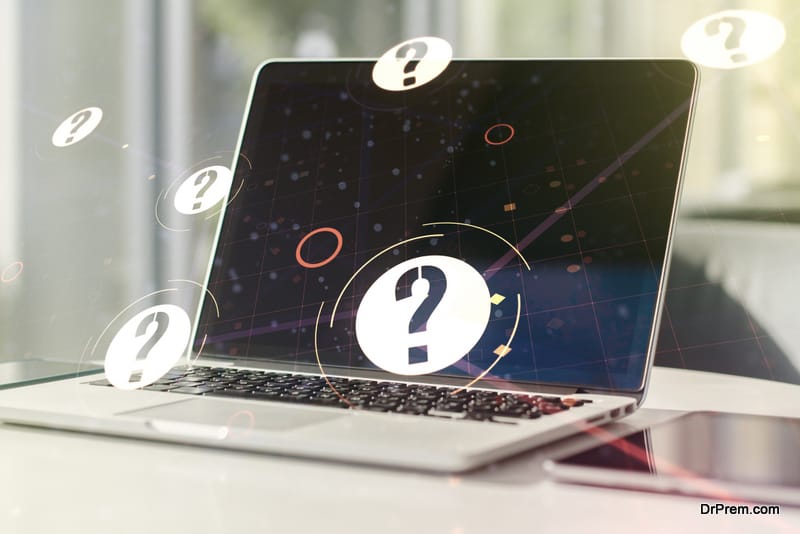
Result: Engagement with 7000 unique users answering 83,000 questions in a single quarter.
Will Chatbots intrude our boundary of privacy?

Won’t disclosing too much personal information make us vulnerable? What if the Chatbots get hacked and lead to data pilferage? How to safeguard this unimaginable load of valuable data generated through our regular interaction?
The power balance between humanity and technology: Who will have more control?
